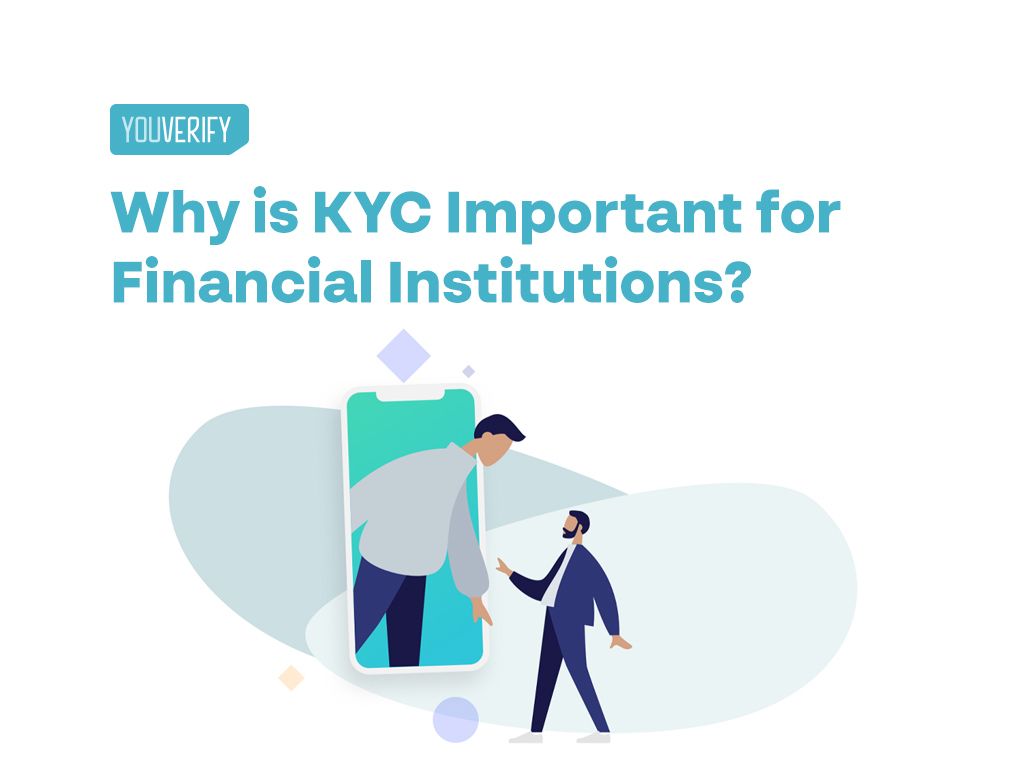The ever-increasing rate of cyber fraud and identity theft means that financial institutions are being taxed with more complex regulations for identity verification. This process of customer identity verification is called Know Your Customer (KYC). KYC is one of the most vital cogs for curbing Anti Money Laundering (AML) and Counter-Terrorist Financing (CFT). In this article, we would be discussing “why is KYC important” and its other requirements in the finance industry.

What is KYC?
Popularly known as Know Your Customer or Know Your Client, KYC is a series of processes put in place to verify the identity of customers before financial institutions can conduct business with them. These processes are put in place to help prevent money laundering, terrorism financing and other associated cyber frauds. Through important steps like verifying a customer's identity, and understanding their transaction patterns and intentions, financial institutions can better pinpoint suspicious activities.
All financial institutions are subjected to high KYC standards and laws, causing them to spend a high amount of money to comply. Otherwise, they could get fined. However, there are cost-effective identity verification services these institutions could use to lessen the financial implications.
Also, read more - What is KYC? Understanding Know Your Customer & How it Works.
What is KYC in banking?
KYC in banking simply refers to the customer due diligence process that financial institutions use to assess and monitor the risks associated with transacting with a customer. Identity verification is arguably the most important step of KYC in banking, as it ensures that a customer is who they say they are.
During KYC due diligence, customers are required to provide ID credentials as proof of identity and address. These documents are used for verification. Examples of the types of identity verification that could be used include ID card verification, biometric verification, face verification, online identity verification and more. The exact type of verification depends on the level of risks associated with the transaction. In Nigeria, NIN, BVN, National ID, Passport and utility bills are some of the acceptable documents.
Read more on the different types of KYC.
Why is KYC important?
KYC is mandated by law for financial institutions to verify a customer's identity and assess associated risk factors. Know Your Customer due diligence helps prevent money laundering, identity theft, terrorism financing, financial fraud and other cyber/ finance-related crimes. Non- compliance could be costly to organisations.
Introduced far back in the 1990s, KYC was established to fight money laundering and terrorism financing. Its enforcement was made urgent following the 9/11 attack in the US. Within a few years, it was adopted across the world.
What is the difference between KYC and AML?
The major difference between KYC and AML is that KYC relates to the specific actions that an institution must take to verify a customer's identity and assess risk. AML on the other hand refers to the overall regulations that have been put in place for financial institutions to follow to prevent money laundering.
Also, financial institutions can fully develop their own KYC standards according to the possible risk exposure. However, AML depends on the country in which the institution operates from. This means that financial institutions have to develop their KYC procedures to match the AML standards in their jurisdictions or country.
Who needs KYC?
Generally, financial institutions are the major category of business that needs KYC. KYC processes generally kick in when onboarding a new client or an existing client acquires a regulated product or want to apply for services like loans.
Some of the organisations that require KYC include:
- Banks
- Private lenders and other lending platforms
- Brokers, dealers and wealth management companies
- Credit unions
- Fintech apps
On a wider scale, KYC regulations are very important for businesses that conduct financial transactions. Basically, this is every single business today. Because financial institutions are held to a high KYC standard, they pass it to institutions which they do business with.
Insightful Read - What is Periodic KYC Refresh?
What are the actions that can trigger a KYC check?
Some of the actions that trigger KYC checks include:
- Adding new clients to an account
- Unusual and suspicious transaction activities
- A drastic change in the nature of a client’s business or acquisition of a regulated product
- Change of client occupation
- AML updates by relevant authorities
Read more: How do banks verify Identity?
What are the 3 steps of a KYC framework?
The three major steps of a KYC framework include:
1. Customer Identification Program (CIP)
The customer identification program is the framework where the customer’s identity is verified. In this stage, the financial institution would conduct its preferred CIP process based on its risk profile. As a result, a customer could be asked any of the following for individuals:
- A passport photograph
- Drivers’ license
- National Identification Number (NIN)
- Bank Verification Number (BVN)
- National Passport
- Other accepted government-issued ID
For a company, the requested documents may include:
- Partnership agreement
- Government-issued business license
- Trust instrument
- Certified article of incorporation
- Financial statement
- Financial references
2. Customer Due Diligence (CDD)
The Customer Due Diligence process is the stage where the organisation conducts appropriate risk assessments. The process involves examining potential transactions a customer would make, and therefore, be able to detect suspicious behaviours.
The organisation can then proceed to assign risk ratings that determine how often the account would be monitored. This action can be carried out in three stages, which include:
3. Continuous Monitoring
This is the final step in which the financial institution continuously monitors their clients' transactions for suspicious activities.
What are the documents required for KYC?
The most basic documents are a proof of identity with a clear photograph and a proof of address. Organisations could ask for any of the following:
- Voters’ card
- Drivers’ license
- Letter from a recognised public authority or servant
- Bank passbook with a photograph
- Employee identity card for reputable private or public sector companies
- Government-issued ID
- National Identification Number (NIN)
- Bank Verification Number (BVN)
- Bank account statement
- passport
- Utility bills
- Certificate for residency proof
You ID saves you the hassle of always having to carry important documents around and helps you automatically supply any information needed during online registrations directly off the app.
Download the You ID app today!
Swift KYC With Youverify OS (YV OS)
YV OS is Youverify’s flagship product that allows businesses to complete digital KYC in a matter of seconds.
Here is a video description of how it works:
You can now onboard customers and complete KYC using just their mobile phone numbers. Keep in mind that it has to be the phone number linked to their bank account and NIN. By collecting their phone numbers, our “Advanced Search” can help you retrieve other relevant information like their NIN, BVN and full data.
The implication is that businesses and organisations can now onboard customers with just their phone numbers and complete KYC with full compliance. This greatly transcends the current use of customers' phone numbers for only user authentication like OTP.
Advanced Search is available on our flagship product, YV OS, and only available to customers in compliance with Nigeria Data Protection Regulation (NDPR).
Book a demo session to see how YV OS can help automate your business KYC due diligence today. Feel free to contact us here for any questions.
Bottom line
KYC is a very important part of financial transactions that protect customers and financial institutions alike. Institutions are mandated to follow set regulations to curb AML and CTF activities or risk being fined.
As an organisation, it is important that you play your part to help identify and eliminate the risk of fraud for an overall better customer experience and brand image.
Book a demo now to see exactly how we can help you achieve that!
